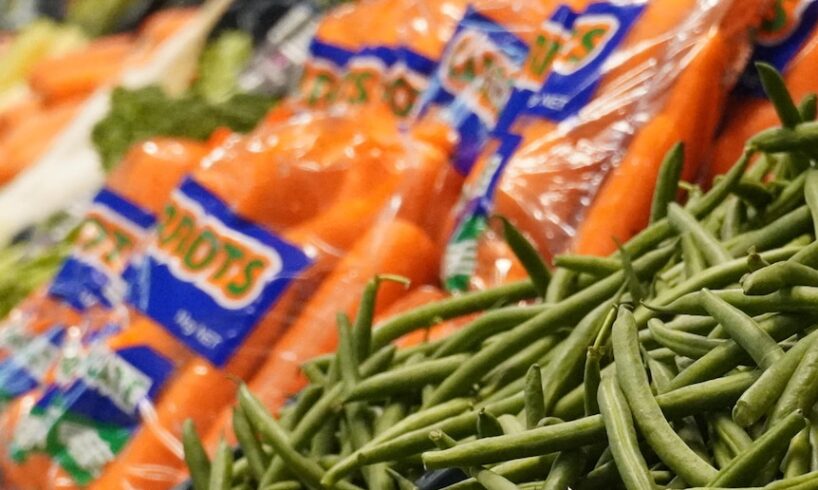
Hundreds of farmers and food producers across Australia are scrambling to keep their organic standard certification after the collapse of a major organic certifier.
South Australian-based NASAA Certified Organic Pty Ltd (NCO) was placed into voluntary administration last week.
Products certified by NCO met federal government standards for exporting legitimate organic products, but producers have been told that certification is no longer valid.
Those affected have until September 26 to find a new certifier before their certification expires, or face not being able to export organic products.
Jackie Brian is the CEO of Australian Organic Limited. (ABC News: Billy Cooper)
Jackie Brian, chief executive of peak industry body Australian Organic Limited, said the organisation had been working closely with the government to try to make the transition as seamless as possible.
“There is no additional charge going to be imposed on operators in order to have those certificates reissued,” she said.
“NASAA-certified operators will be able to continue to use their existing packaging for 12 months to allow them to have a transition plan.”
Businesses caught off guard
While industry leaders work to minimise disruption, individual businesses are grappling with the practical challenges of the sudden collapse.
NCO provided certification services to hundreds of businesses across all Australian states, including meat, seafood, baby food and fruit producers as well as wineries, and major dairy companies.
That included well-known brands such as Bertocchi Smallgoods, Costa Farms, Fonterra Australia, the Tasmanian Oyster Company, Bellamy’s Organic, and SunRice.
SA-based organic compost producer Mulbarton is one of the hundreds of businesses now forced to find a new certifier.
Rebecca Weller from Mulbarton said the collapse of the businesses was a complete surprise.
“It was actually very sudden,” she said.
While payment will not be required to be recertified, Ms Weller said it would still cost the business in time.
Rebecca Weller says there is a lot of paperwork to get businesses recertified. (Supplied: Rebecca Weller)
“We will be going through a range of paperwork and time-consuming reports,” Ms Weller said.
“Every business would understand when you get audited it’s very costly financially with all the time making sure you make the standards.”
Ms Weller said there would also be other expenses from the changeover.
Mulbarton Compost has recently added its organic certification to its transport trucks. (Supplied: Mulbarton Compost)
“Some [certified businesses] have major packaging for a couple of years ready,” she said.
“We have trucks that we’ve just printed our organic certification on because we’re also a transport business, so there’s a major implication.”
The Department of Agriculture, Fisheries and Forestry has notified organic operators and exporters that NASSA certifications are “no longer valid”.
In advice to operators, the department said it was working with other certifying bodies to support operators and ensure a transition with minimal disruption.
Infant formula is among the many organically certified products caught up by the sudden closure of NASAA. (ABC Rural: Selina Green)
Calls for national regulation
Australian organic products must have national standard certification before they can be exported.
Calls continue to change organic labelling rules in Australia
According to the ACCC, organic products intended for the Australian market do not need to meet a particular standard or be certified to be labelled organic.
However, it says businesses that make an organic claim must be able to prove it.
Jackie Brian said Australia needed an internal national accreditation.
“We are the only OECD country that doesn’t have regulation around the use of the term ‘organic’ domestically,” she said.
“In every other OECD country, you can only claim a product is organic if it’s certified organic. We’re lobbying to have that be the case in Australia as well.”





